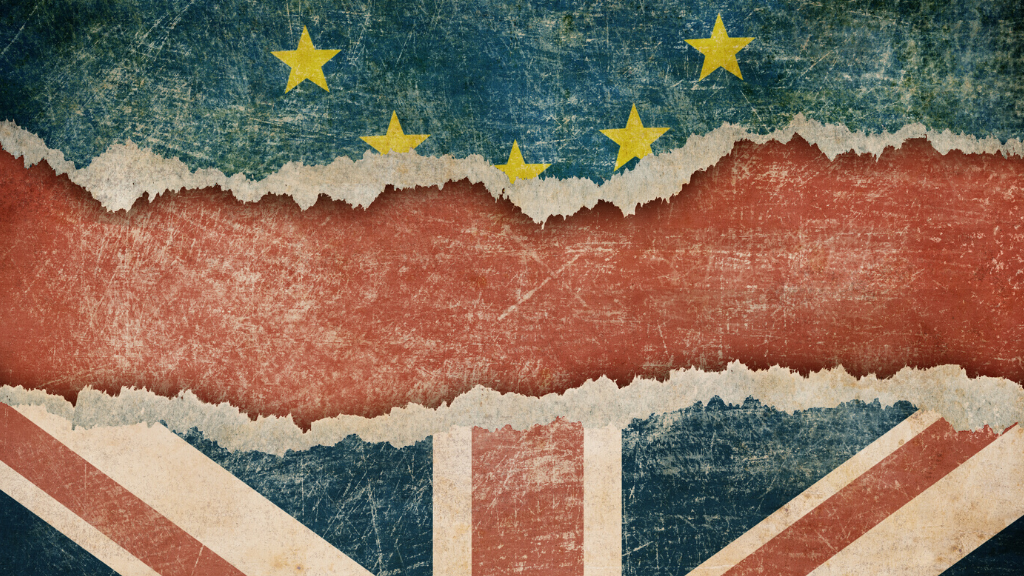Philip Rycroft is Distinguished honorary researcher at the Bennett Institute for Public Policy, University of Cambridge; a Policy Leaders Fellow Alum at the Centre for Science and Policy; and a former Permanent Secretary at the Department for Exiting the European Union.
Through the rest of 2020 and well into 2021, the British state will have to deal with the conjunction of two seismic shocks.
For one it ought to be well prepared. Officials and ministers have laboured hard since the 2016 referendum to get the country ready for Brexit. Once uncertain, the manner of our leaving the single market and custom union has narrowed to two options, both at the hard end of any previously imagined Brexit scenario; departure with a thin free trade agreement or departure with no trade deal at all. One would likely be more chaotic than the other, but both require immense adjustment to the apparatus of the state, not least the creation of a new trade border with our major trading partner and the re-homing of all of the appurtenances of the EU bureaucracy.
For the other, it transpires, the country was ill-prepared. The state has scrambled to piece together a response to the coronavirus crisis through a fog of confusing data and uncertain science. A formal judgement on how well, or otherwise, the state has coped, both in its own terms and in comparison to other countries, will have to wait for the inevitable enquiry. For now, what is evident is that the tail of consequences from the original outbreak will be with us into next year and well beyond.
The combination of the two will stretch the capacity of the state like never before in peacetime. Few parts of Whitehall will be exempt from the upheaval. Those departments that carried a relatively light Brexit load like health and education will continue to be in the forefront of the coronavirus fallout. Those like the Treasury and the business department that have to deal with the brunt of the economic adjustment required for Brexit now find themselves with a double-helping of economic disruption.
Meanwhile, waiting in the wings is a potential third shock; the promise of this government to ‘fix Whitehall’. The remaking of the British state has long been part of the Brexit promise; no point, the argument goes, in loosing the UK from the shackles of Brussels only to leave the deadweight through domestic bureaucratic inertia. Nor are there signs that the current crisis has lessened the reforming zeal.
Although there is no blueprint, there are clear indicators as to the way in which Whitehall will be fixed and it is possible to see how the current crisis is reinforcing existing prejudice. Private companies, business leaders and the army have been brought in at various points to shake up or bypass the existing bureaucracy, much as the apparent agility of the ARPA programme is touted as a model for sparking innovation and economic development. Power has been further concentrated in No 10. Metro-mayors, and increasingly the devolved governments, have been left on the sidelines. Will these responses be a guide to future action on fixing Whitehall?
This is not a government, it seems, much given to self-reflection. If it were, it might pause to ask itself whether these might be entirely the wrong lessons to draw from current exigencies.
Appropriate in a crisis, a short-circuiting of process and a subverting of structure create the risk of a destablising feedback loop. Process and structure provide certainty and accountability. Loosen up too far and the clamour for blame when things go wrong, which they inevitably do, creates a demand for process and structure to prevent a recurrence; Ministers risk finding themselves trapped in an endless cycle; loosening, tightening, loosening and tightening again.
Concentration of power in very few hands makes for a brittle state. Quite apart from the tendency to unchallenged group think, the credibility of the enterprise rests on the reputation of too few actors, as we have witnessed in the current crisis. Does taking back control mean focusing even more power on the executive arm of the British state, held in the grip of a court-like No10? That would mean a further atrophying of the scope for the critique and challenge so essential to the functioning of a healthy democracy.
An over-centralised state likewise lacks resilience. Hoarding of power and resources to central government inhibits experimentation and innovation. It reduces the incentive to take responsibility. Politicians with their own democratic legitimacy who are forced to wait outside the tent will take their own political path. In a fragile UK, when a common crisis might have been a force for unity, that at minimum is an opportunity lost. But that, evidently, is trumped by the over-riding priority to get Brexit done through the reassertion of the untrammelled sovereignty of the UK Parliament.
What lessons will the government learn from the crisis? With the radicalism of the Brexit insurgency still in the driving seat, a pause for reflection looks unlikely; expect rather a doubling down. Fasten your seat belts; it could be a bumpy ride.
-
This blog was originally posted via the University of Cambridge Centre for Science and Policy on 19 June 2020.
Watch Philip Rycroft's IPR Public Lecture 'Brexit and the future governance of the United Kingdom' here.
-
Are you a decision-maker in government, industry or the third sector? Apply now to our virtual Policy Fellowship Programme for access to University of Bath research and expertise. Learn more.
All articles posted on this blog give the views of the author(s), and not the position of the IPR, nor of the University of Bath.
Respond




